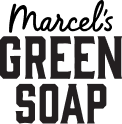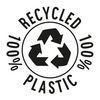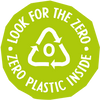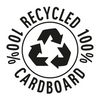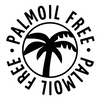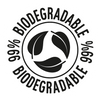WORLD ANIMAL PROTECTION X MARCEL'S GREEN SOAP
Marcel's Green Soap has recently become a partner of World Animal Protection. This organization has been committed to animal welfare for more than 50 years. Their mission? A world where cruelty to animals no longer exists. And because topics such as animal welfare, climate and biodiversity are also close to our hearts, we decided to join forces. This way we can make an even greater impact together with World Animal Protection. Would you like to read more about animal-friendly washing and the impact of palm oil on the planet? Our friends from World Animal Protection wrote there an article about.
FEEL GOOD CLEANING
Marcel is always transparent about what we stand for as a brand, which ingredients we use and where our products are produced. His vision was, and still is, to change the world of soap. Marcel's sink cabinet was full of aggressive, chemical stuff that doesn't exactly make the world any cleaner. This had to be possible differently: a clean house and a healthy planet. He devoted himself to developing ecological soap. That was the start of a line of vegan and almost completely biodegradable products for your entire home and even in the shower. Ecological soaps in bottles made of 100% recycled plastic, good for you and for the planet. We call that Feel Good Cleaning. But we feel less and less good about the use of palm oil in our products.
HANDLE PALM OIL DIFFERENTLY
We are all familiar with the images of rainforests being cut down to make way for palm oil plantations. A shame, we think. The rainforest is responsible for more than 80% of our planet's biodiversity. Rainforests, such as those in the Amazon region, also have an important function when it comes to the absorption of CO2. The vegetation on our planet, of which the Amazon is an important part, absorbs a quarter of all the CO2 we emit. An enormous amount of CO2 is also stored in the forests, including in trees and charcoal. If that is released, it will have a major impact. That is why it is so important that we protect the rainforests that are still there. That got Marcel thinking. If this continues, the earth will warm even further. Will the earth still be livable for his 3 daughters in a few years? There must be another way to deal with ingredients like palm oil, right?
RESTRAINT THE GROWTH OF NEW PALM OIL PLANTATIONS
The world population is growing and the demand for palm oil will only increase. The only solution to slow down the growth of new palm oil plantations is to use less palm oil. That is why Marcel decided to make his detergent, the product we all use (almost) daily, palm oil-free. With this product we can make the most impact together. In addition, detergent is also the product where you notice less if the palm oil is omitted. What's that like? We would be happy to explain this to you. Comment: the surfactants (the foaming and dirt-dissolving agents) that are in a number of our products are made from palm oil. Palm oil is a wonderful product and works very well, you don't need a lot of it and it is a fairly cheap ingredient. That is also the reason why the world loves palm oil so much: it is very difficult to make a formulation that works just as well, feels just as nice and is just as affordable.
After much testing and trialling, our detergent succeeded. Detergents have the advantage that, in addition to surfactants, they also contain enzymes that dissolve dirt (which take over part of the work of the surfactants). You also don't touch detergent with your hands, so you don't feel the difference. This does not apply to all other products such as shampoo, so it is much more difficult to get an equivalent product without palm oil. Replacing palm oil in all products is not the solution.
WHY 100% REJECTION OF PALM OIL IS NOT THE SOLUTION
In our opinion, completely rejecting all palm oil is not the answer. No other vegetable oil scores better on these environmental aspects than palm oil. Palm oil has a very high yield per hectare (4-10 times higher than other vegetable oils), cultivation requires few pesticides and fertilizers. Palm oil also requires little irrigation. Coconut oil or a mix of soy oil, rapeseed oil and sunflower oil could replace palm oil in many products. But coconut oil and soy oil are also tropical products. They have a lower yield per hectare than palm oil, which means that the risk of deforestation (and therefore loss of biodiversity and additional greenhouse gas emissions due to land conversion) is even greater than with palm oil. Replacing 100% of palm oil with coconut oil or soy oil is therefore not more environmentally friendly.
BUT WHAT THEN?
We think it is important as a brand to do our part and focus on slowing down the growth of new palm oil plantations. Together we can ensure that rainforest no longer has to make way for new palm oil plantations. There are enough palm oil plantations on our planet, we don't need more. Let's explore other routes together and find new ways to deal with palm oil. Be more conscious about using palm oil. For example, choose products without palm oil where that is easy, and choose sustainable palm oil when it comes to products where palm oil is difficult to replace.
WHAT IS SUSTAINABLE PALM OIL?
Our suppliers of palm ingredients are all Roundtable on Sustainable Palm Oil (RSPO) certified sustainable palm oil suppliers. The RSPO is an international organization where companies and environmental organizations (including WWF and Oxfam Novib) work to make palm oil cultivation worldwide more sustainable. Palm oil with the RSPO quality mark must meet many requirements. For example, the cultivation of sustainable palm oil must not have been at the expense of natural forests and the habitat of endangered animal species. Plantations are also not allowed to be set up on peat soil. There are also requirements for the use of pesticides, wastewater management, energy and greenhouse gases. The quality mark also has criteria for respecting the rights of employees and local residents.
By working together to be more conscious about palm oil, we can make a difference. Are you participating? Try our palm oil-free detergent now and was really clean.
Sources: Milieu Centraal, World Animal Protection, WWF, RSPO, NOS

